Meet the woman who has turned her Wakefield home in to a bakery
When the natural way of life was interrupted by lockdown restrictions many took the opportunity to reflect and, in some cases, take a risk. Kitchen worktops around the country proved to be the birth of many a baking businesses.
The surge of the entrepreneurial spirit was fuelled by stay-at-home folks shopping online who wanted to support the independents on whom they depended to literally bring them their daily bread. It is this loyalty from customers who are conscious about sustainable food production that has enabled many of those businesses to continue to flourish and survive on the back of the surreal circumstances that led to their development.
Advertisement
Hide AdAdvertisement
Hide AdAlexandra Vaughan was already an established micro-baker when the Covid pandemic hit, but she acknowledges the impact it has had on the considerations consumers now have for food production.
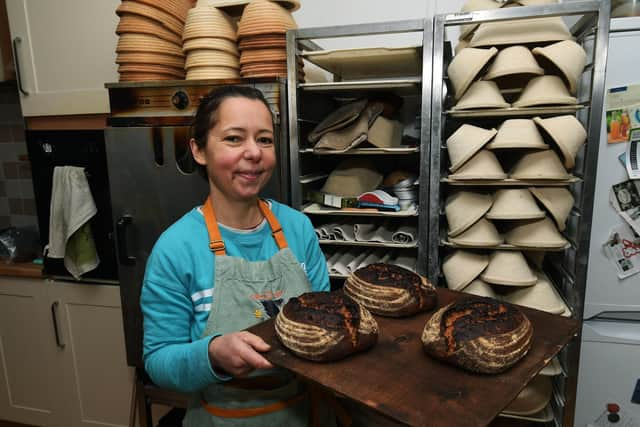

“It made people aware of the importance of food for their health, but there is a lot more open talk about it.”
Alexandra says she believes while it has been discussed for decades, people are now sufficiently concerned to make change happen.
“It’s not saying we should all be vegan, but maybe we will eat meat once or twice a month and we will enjoy it more.”
Advertisement
Hide AdAdvertisement
Hide AdAlexandra’s interest in food production is the back-bone to the micro-bakery she started in 2016.
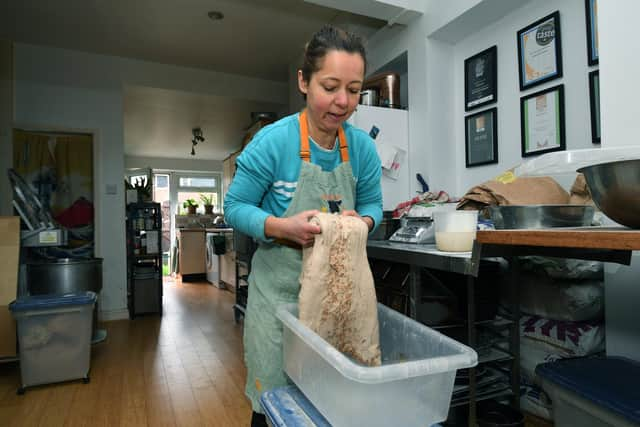

Then living in London, where she came to from her native Portugal to study, Alexandra’s love of bread – and seeking something different from the mass produced supermarket varieties – prompted her to start baking her own.
“Eighteen years ago there wasn’t the amount of bakeries. If you wanted bread it was from the supermarket. That is why I started breadmaking. I started making bread for me because I didn’t want to buy pre-packed loaves.
“I was making bread for quite a few years then I went to a class, an introduction to breadmaking because, for me, that is how you learn to do something. No matter how many books you read you don’t understand what the dough should feel like. You see how it changes and that is what I have done with people who come on my classes,” says Alexandra, referencing the workshops, for three people at a time, to learn the art of bread-making at her Wakefield home where she has converted the ground floor into a micro-bakery.
Advertisement
Hide AdAdvertisement
Hide AdPlacing a plate of her freshly baked Anzac cookies, a nourishing mix of vegan coconut, pea flour, oats, olive oil, water and a touch of Golden Syrup, on the table before us – Alexandra chats enthusiastically about her passion for bread and passing that on to others through The Crow’s Rest Bakehouse.
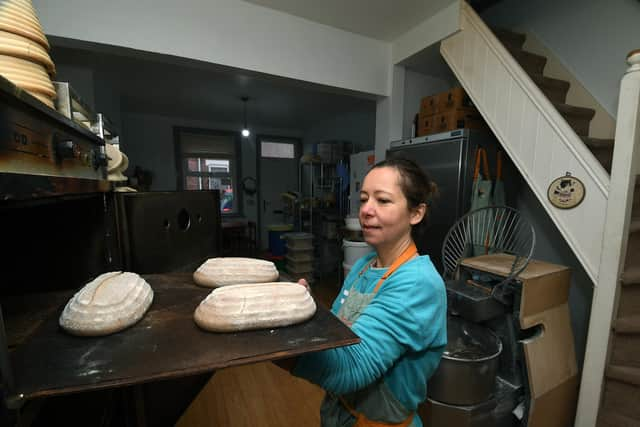

It was her supportive husband, Nicholas, who came up with the name. “We were living in a top floor flat in London and the crows were always on the roof of the building. My husband said ‘why not call it the Crow’s Rest?’
From baking bread for herself, Alexandra was soon baking bread for her neighbours and friends in London. Since then the business has grown organically.
“Most of my life I have worked in offices but I came to the conclusion I didn’t want to work in offices any more. I went to a local bakery and spent a day there – it’s easy when you have a hobby but I wanted to see if I still enjoyed it. I had a blast, really loved the day I spent there.”
Advertisement
Hide AdAdvertisement
Hide AdAlexandra gained similar experience when she and Nicholas, a visual artist, re-located to Wakefield.
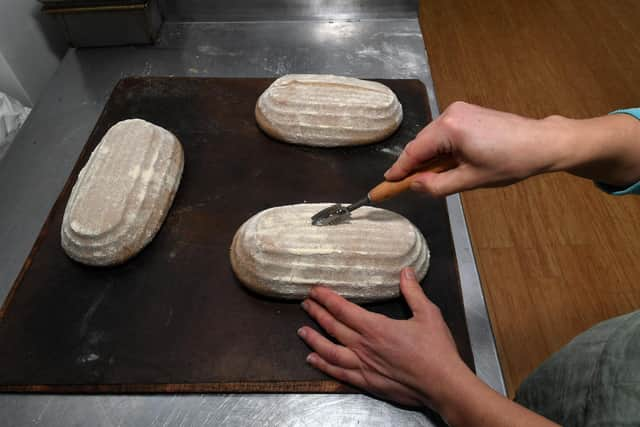

“I wanted to bake and learn. I thought I need to do as much as I can so I can learn.”
Alexandra began attending pop-ups and farmers’ markets to raise her profile.
“You make connections, you meet people and see opportunities.”
Advertisement
Hide AdAdvertisement
Hide AdShe had already set up a website while living in London. Her online custom grew as a result of the pandemic.
“A lot is online and a lot is word of mouth,” says Alexandra, of her loyal custom base, which includes a Wakefield restaurant.
Social media has also played a part in promoting the bakery which has received recognition in a range of food industry awards.
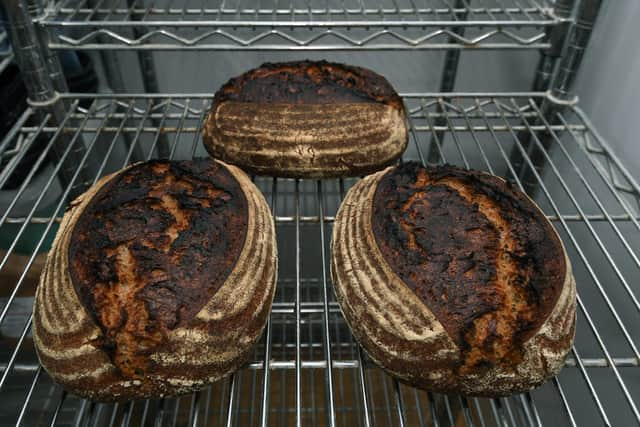

Certificates, for some of the bread varieties she produces, from Great Taste, Britain’s Best loaf and Tiptree World Bread Awards are proudly displayed on the bakery wall.
Advertisement
Hide AdAdvertisement
Hide AdAlexandra currently bakes between 150 and 250 loaves weekly, including baguettes, in her breadmaking oven for which she successfully set up a crowd-funder.
Sourdough is her speciality. “Personally it is a bread I like. Scientifically there is a lot of strong evidence that it is more digestible and it is nutritionally more interesting.
“For me bread should be really nutritious because it is such an important part of most people’s diet. Most people may have a sandwich for lunch, whether buying it or taking it from home, bread should be filling more of a role than just being like, almost, the packaging of the filling in a sandwich.
“If you eat bread made with proper flour that is not just bread, it makes you chew and has stuff in it that becomes part of your meal as well, it fills you up.”
Advertisement
Hide AdAdvertisement
Hide AdThe creation of Alexandra’s bakes are a lengthy process as she explains.
“Making bread you don’t just come down to the kitchen and make a loaf in half an hour, it takes time.”
Alexandra says the majority of her bakes are fermented with sourdough culture. The process involves refreshing the starter; the following day mixing the dough and fermenting before shaping and baking.
“The bread I bake is not a treat,” says Alexandra, emphasizing the point that her bakes are free from additives and improvers.
Advertisement
Hide AdAdvertisement
Hide Ad“I make a loaf of bread and it will sit on the counter for four days and we are still eating it. If you have a freezer the best thing is to freeze it to keep it fresh.”
“Mass produced food serves a purpose but, at the same time, it is one of the main reasons we are in the massive problem we are in with our food system at the moment. We need to feed everyone, but a third of food produced globally is wasted,” says Alexandra.
Such is her interest in sustainable food production, she is currently studying for a Masters degree in Sustainable Food in Natural Resources with the Centre of Alternative Technology.
Alexandra has also adopted sustainable practices when sourcing her stone ground flour, selected for the natural grain goodness. Buying direct from, and supporting, small independent organic millers and farmers builds personal relationships with suppliers.
Advertisement
Hide AdAdvertisement
Hide Ad“I love that I know the farmer, I know the miller and they can discuss with me how the crop has been going. I will get samples of grains to see how this year’s harvest is performing. It is so much more rewarding to know a product of theirs is being used to feed people,” says Alexandra, who is also a member of Bread Angels, a network of people running bakeries and passing on skills to others.
Being part of the Small Grain Economy enables bakers to use grains that wouldn’t be suitable for industrial flour processing due to the need for them to perform at a consistent level in machines, thereby reducing waste.
“We are reading the dough and adapting what we do,” says Alexandra, explaining how it can also be used for cookies and cakes. It is a much more holistic approach to making bread, letting you read the flour and see what it needs and what I can do with it. I think it puts a lot more scope on what we eat and how we eat it.”
thecrowsrestbakehouse.co.uk.